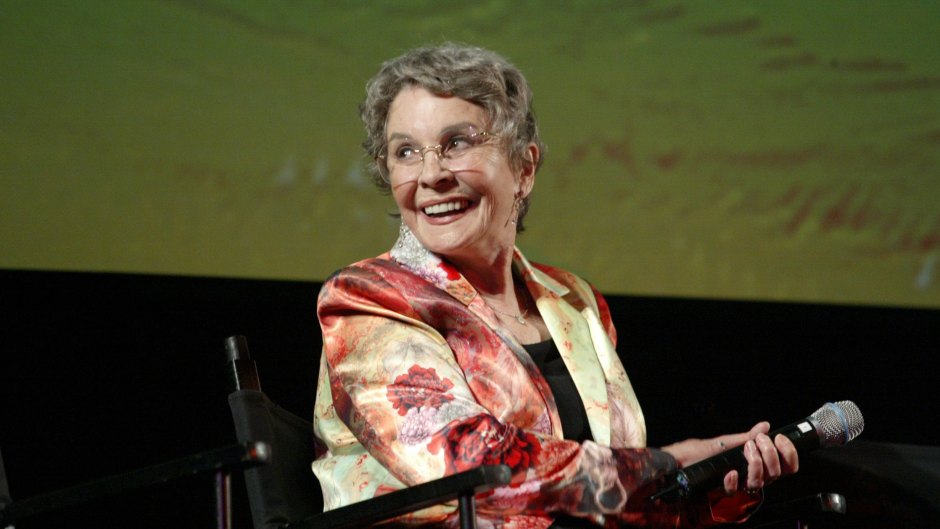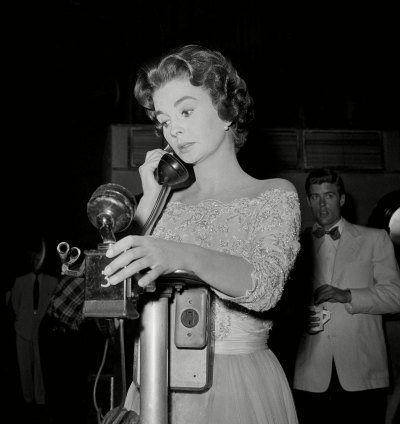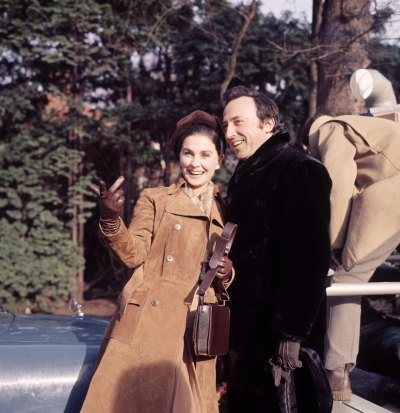
BEI/Shutterstock
Actress Jean Simmons Remembered By Daughter Kate Brooks: ‘I’m Proud She’s My Mom’
Jean Simmons is remembered as a luminary of the silver screen, but, according to her daughter Kate Brooks, she played her most cherished role behind the scenes — as a doting mother and wife. “Mom always put us first,” Kate tells Closer. “She was the most gentle, polite hero in my book — a real lady. I really don’t have a bad word to say about her.”
Despite Jean’s demanding work schedule, she always managed to make time for her family, especially at Christmas. “My mother would wrap every little, tiny [present],” Kate recalls. “It was really fun for her. She was always so happy to see us around those dramatic Christmases.”

The British-born actress got her start early, garnering international renown at just 17 for her portrayal of Estella in David Lean’s Great Expectations. Her star continued to rise once she moved to Hollywood, where she expertly tackled parts ranging from Shakespearean maidens to devilish femme fatales. Her favorite role, though , was Sister Sarah in the 1955 musical Guys and Dolls.
“Singing with Marlon Brando and acting with Frank Sinatra — you couldn’t get better casting than that!” Kate says. “I would always tease her and say, ‘ Mom, which one?’”
Jean certainly had a revolving door of leading men to choose from, but she only had eyes for screenwriter and director Richard Brooks, Jean’s second husband and Kate’s father. The pair wed in 1960 following Jean’s decade-long marriage to the British actor Stewart Granger, with whom she had her first daughter, Tracy.
Asked what Jean considered her greatest accomplishment, Kate quickly responds, “Marrying my dad. He wasn’t easy; she was a trouper. They made it work for so long.” In a 1984 interview, Jean said, “It was Richard Brooks who tried to make me stand on my own two feet. I’d whine: ‘I’m afraid.’ And he’d say: ‘Never be afraid to fail. Every time you get up in the morning, you are ahead.’”

Sadly, busy work schedules drove Jean and Richard apart, and their marriage ended in 1980. According to Richard, there was hidden turmoil beneath the surface of their happy union — Jean’s struggle with alcohol. In 1969, he cast her in the role of an alcoholic wife in his film The Happy Ending, a not so-subtle hint at his concern for her. Jean would seek treatment years later at the Betty Ford Center, quipping, “All I can say is thank God for Mrs. Ford!”
After many decades in the spotlight, Jean began to embrace her solitude. “Later on in life, she turned rather hermit-like,” Kate says. “She liked her privacy.” Yet, even in her twilight years, Jean’s values held strong. “At the end of the day, family wins hands down for her. She wasn’t yearning for anything but maybe her marriage back,” Kate says. “I’m proud she’s my mom.”






































